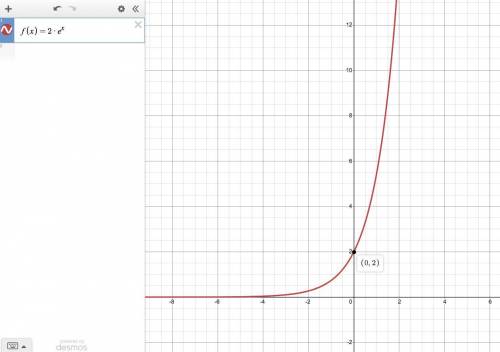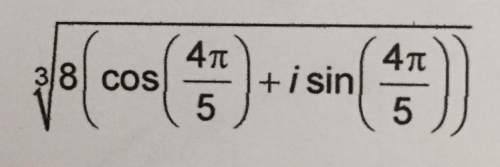Which of these statements is true for f(x) = 2•3^x
A. The y-intercept is (0,2).
B. The y...

Mathematics, 10.03.2020 09:50, malak3782
Which of these statements is true for f(x) = 2•3^x
A. The y-intercept is (0,2).
B. The y-intercept is (0, 1).
C. The domain is x > 0.
D. It is always decreasing.

Answers: 1
Other questions on the subject: Mathematics



Mathematics, 21.06.2019 18:40, rivera8
Juliana says that she can use the patterns of equivalent ratios in the multiplication table below to write an infinite number of ratios that are equivalent to 6: 10. which statement explains whether juliana is correct? she is correct because she can multiply 6 and 10 by any number to form an equivalent ratio. she is correct because 6: 10 can be written as 1: 2 and there are an infinite number of ratios for 1: 2. she is not correct because the multiplication table does not include multiples of 10. she is not correct because 6: 10 is equivalent to 3: 5 and there are only 9 ratios in the multiplication table that are equivalent to 3: 5.
Answers: 1

Mathematics, 22.06.2019 00:10, angelteddy033
Use your knowledge of the binary number system to write each binary number as a decimal number. a) 1001 base 2= base 10 b) 1101 base 2 = base 10
Answers: 1
Do you know the correct answer?
Questions in other subjects:




Mathematics, 20.03.2020 07:36


Mathematics, 20.03.2020 07:36




Mathematics, 20.03.2020 07:37








